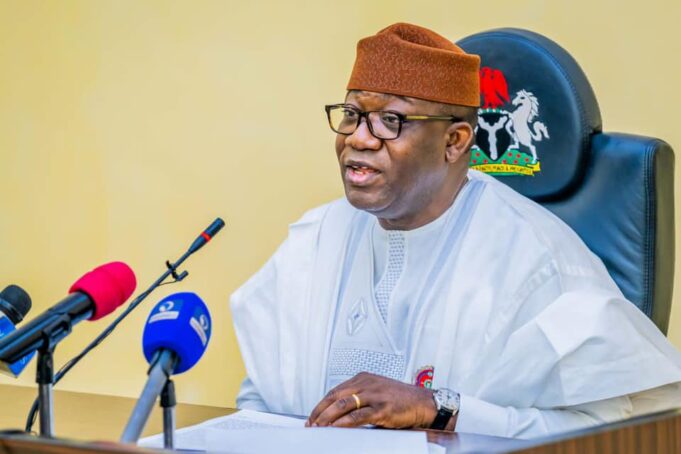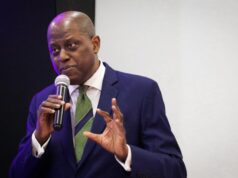The Chairman, Nigeria Governors’ Forum (NGF), Gov. Kayode Fayemi of Ekiti State, has explained that security votes collected by state governors are used to support security agencies and their operations to enhance security in the states.
Fayemi stated this while speaking as a panel discussant during a two-day multi-stakeholders meeting on the “Peace and Inclusive Security Initiative”, organised by the NGF in partnership with the Center for Democracy and Development (CDD) in Abuja on Thursday.
Fayemi, responding to questions on what the governors do with security votes and why they are against local government autonomy, said not all governors collect security votes.
“Security vote has a history. And I will urge you to look for a book by Chief Jerome Ugoji – “Serving three masters.” You will find in that book the origins of security votes in Nigeria.
“You say what do we do with it? Without mincing words, I can’t speak for others, but I also get feedbacks from other states in my capacity as chairman of the governors’ forum.
“There is hardly any of these institutions that you are talking about that we do not fund. We fund the police.
“Quote me, state governors fund police more than the Federal Government. We buy them vehicles. We pay them allowances. In some cases, we even buy ammunition, of course under the authority.
“And if we are to engage our Military in aid to civil authority, which you will find actually in 36 states in this country, we fund it.
“Today, the military is involved in internal security operations, which really is a problem, because for me, when you inflate the role of the security institution, beyond its primary responsibility, you also have consequences that will come with that. That may not be palatable.
“But that is where we are, because most Nigerians don’t trust police. They will still come and beg governors to say ‘can you ask the brigade commander to put a roadblock in my area’.”
Fayemi said sometimes ordinary citizens insist that governors should engage soldiers even though military roadblocks could not be set up everywhere because the number of soldiers is limited.
“If you engage the military, in a civil authority, your state is responsible to pay for the operations of the men that are engaged in that activity and not expect the military also to share that burden because that is not their primary responsibility.
“You have taken them out of their primary responsibility, you have to pay for it. So we pay for that, we pay for Civil Defense.
“There is no security institution that you have that states are not responsible to more than the Federal Government that has primary responsibility for them.”
- Naira appreciates by 3.3%, trades at N1,354/$ - May 6, 2024
- Shettima aborts U.S. trip as aircraft develops technical fault - May 6, 2024
- Alex Otti should publish Abia Forensic Report now - May 1, 2024










